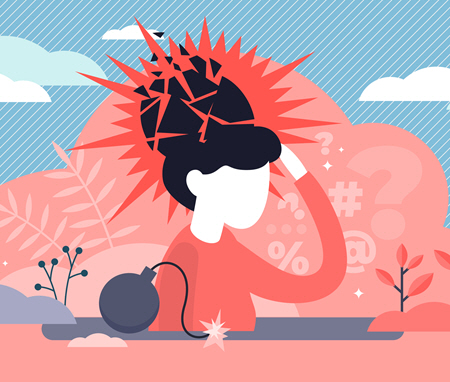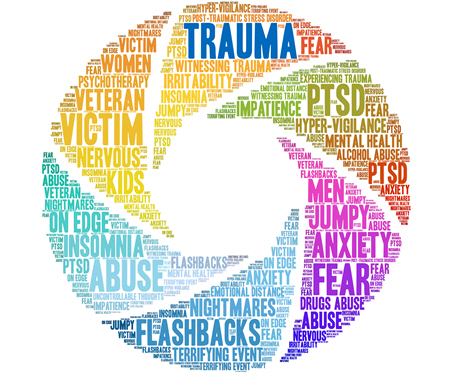 Something happened.
Something happened.
You want to move on with your life – forget it ever happened – feel normal again.
But you can’t. Instead of getting better, it’s getting worse – it’s starting to affect every element of your life.
And you can’t avoid it any longer.
Every time you try to be present in the moment, it’s there.
It affects you in ways you do see, but also in ways you don’t.
 What is trauma?
What is trauma?
Trauma can be anything from a history of childhood physical and sexual abuse to neglect, bullying, and ridicule. It can also involve a series of unrelated negative events that build over time.
Sometimes, it’s an isolated incident, and other times it can be passed down from generation to generation within your family.
I could bore you with the medical terms of how our brains process trauma and take you through the neurological processes that occur, but the most important things you need to understand are that you are not alone and that what happened to you is not your fault.
What does trauma look like?
Trauma comes in all shapes and sizes, and every single one of us has experienced it to one degree or another.

And it affects us in many different ways.
It manifests itself in anxiety, depression, substance abuse, dangerous behaviors, isolation, self-sabotage, to name just a few. You start to believe that you are incapable and unworthy – someone to whom bad things are deserved.
You feel like you should be able to handle what happened to you on your own. And maybe you have been able to push it aside for a while and go on with your life.
But now, it has caught up with you, and you don’t know what to do with it anymore.
Trauma changes the lens through which you see things. It alters your perception of people and events. Unfortunately, this altered perception usually doesn’t align with what is truly (factually) happening.
But you can’t help that at the moment.
 At Its Worst…
At Its Worst…
…trauma teaches you to view the world by constantly being on guard and detecting threats.
And that can be exhausting.
Trauma does a number on your physical state by gifting you with headaches, weight gain/loss, and other not-so-fun effects.
Not to mention, it’s incredibly stressful.
But there’s hope. You can cope – and conquer – your trauma.
First. cut yourself some slack, Everyone reacts differently to trauma, and there’s no right or wrong way to respond.
You may not even be aware of past trauma because, often, we either subconsciously shove it down so far that we can’t remember it, or we minimize the impact of certain events.
The worst part of trauma is the shame associated with it.
Research shows that actually sharing your trauma story with a trained, compassionate listener who receives it with empathy can cut shame off at the knees.
You have to learn to “speak shame” – call it out by name – to squash it.
This is the beginning of healing from trauma.
Rewrite your narrative. Reclaim your power.
Together, we can change your trauma story and strengthen your resilience in confronting your past.
You can learn skills to deal with ongoing or future traumatic events that will serve you, and keep you emotionally healthy and regulated.
You are more – much more – than your negative experiences.
Reach out today, and let me help you step back into the role of hero in your own story.
Lay down your burdens – share them with someone who understands and can help you unpack the heavy load you’ve been carrying.
Together, we can deal with – once and for all – healthily and effectively – what’s been holding you back for so long.
So you can get back to the business of really living.

